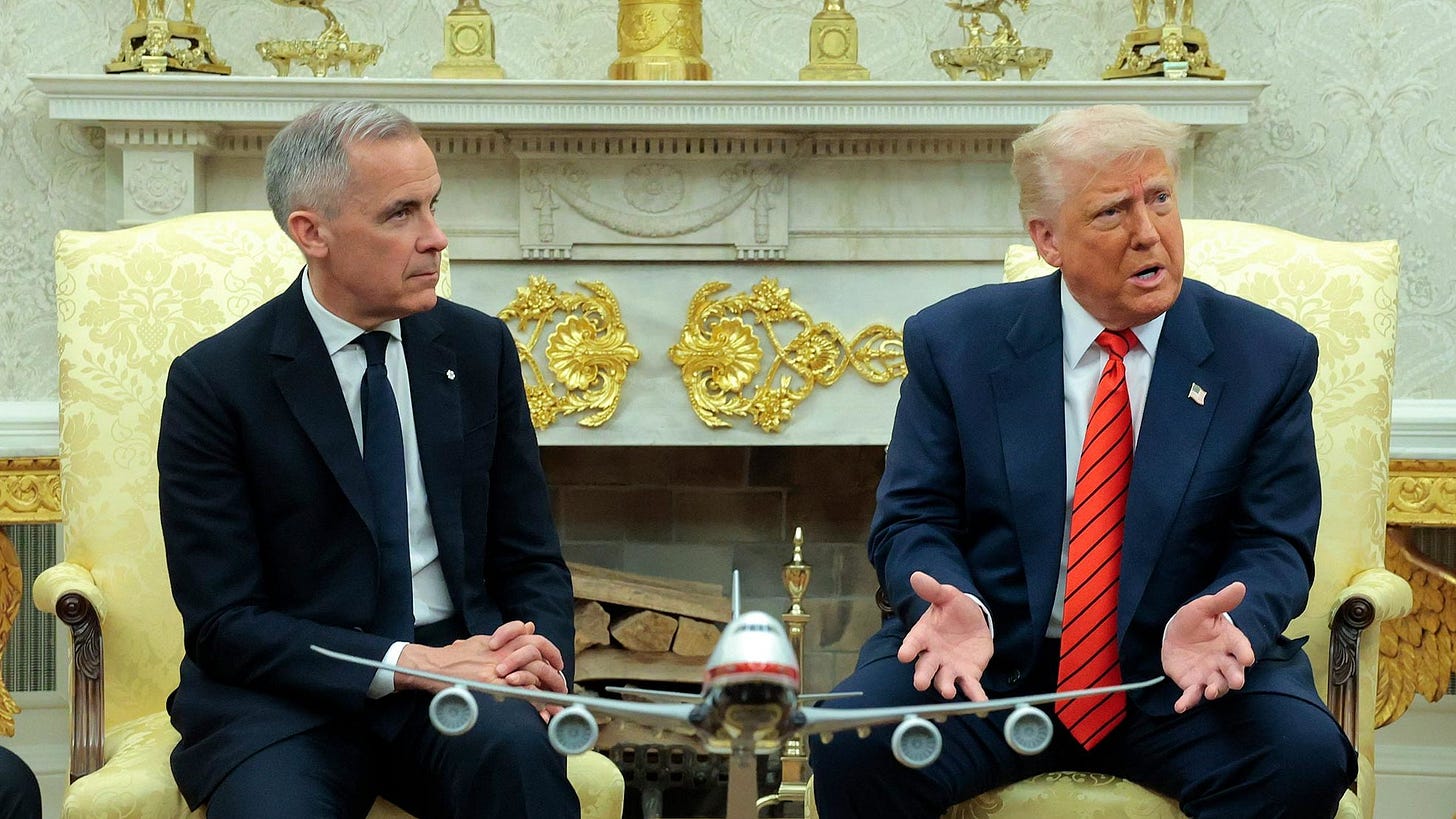Trump Terminates Trade Talks with Canada Over Digital Services Act
In a bold and unexpected move, former President Donald Trump has terminated all trade negotiations with Canada, citing the country's implementation of the Digital Services Act (DSA) as an intolerable affront to American interests.
This decision has not only derailed critical economic discussions between the two nations but has also exposed deep-seated tensions involving globalist agendas, national sovereignty, and Canada’s shifting political landscape. At the heart of this controversy is the DSA—a tax targeting tech giants—alongside Canada’s Prime Minister Mark Carney, whose ties to the World Economic Forum (WEF) have fueled accusations of external influence over Canadian policy.
The Digital Services Act: A Tax on Tech Giants
The Digital Services Act (DSA) is Canada’s latest fiscal policy aimed at large technology companies that profit from digital services such as online advertising, social media platforms, and user data sales. Implemented as a 3% tax on revenue generated from Canadian users, the DSA applies retroactively to earnings since 2022, with initial payments due imminently.
This measure targets U.S.-based tech behemoths like Amazon, Google, and Meta, which could collectively owe Canada upwards of $2 billion. The tax mirrors similar initiatives in countries like France and the UK, reflecting a global push to ensure that multinational corporations pay taxes where they operate, regardless of physical presence.
Why Canada Is Implementing the DSA
Canada’s adoption of the DSA stems from two primary objectives:
1. Combatting Tax Avoidance: Tech giants have long exploited international tax loopholes, funneling profits through low-tax jurisdictions. The DSA seeks to capture revenue that would otherwise escape Canadian coffers, ensuring these firms contribute to the economy where they generate substantial income.
2. Revenue Generation: With mounting fiscal pressures from social programs and post-pandemic debt, the Canadian government views the DSA as a lucrative source of income to fund public services without raising taxes on citizens directly.
However, this move has provoked a fierce backlash from the United States, particularly from Trump, who labeled it a “blatant attack” on American companies via Truth Social. He accused Canada of mimicking European policies that burden U.S. tech firms, threatening retaliatory tariffs within a week if the tax persists. Critics in Canada also warn that the DSA could deter investment in the digital sector, potentially offsetting its financial benefits.
Keep reading with a 7-day free trial
Subscribe to Lawfare to keep reading this post and get 7 days of free access to the full post archives.




